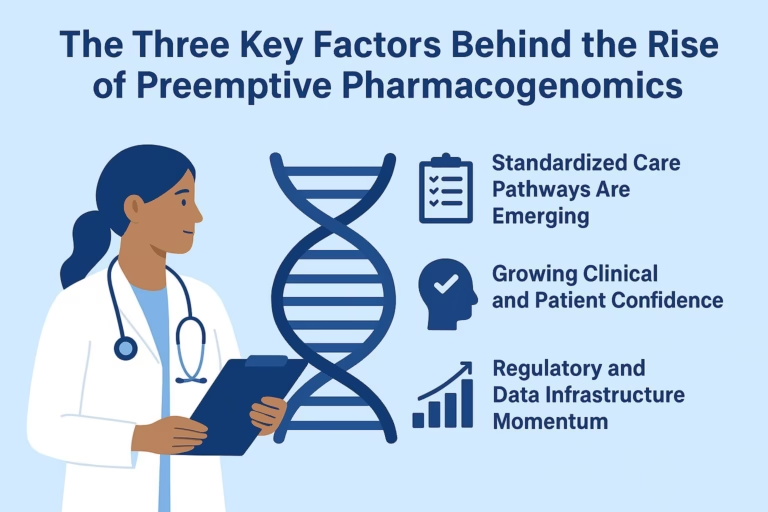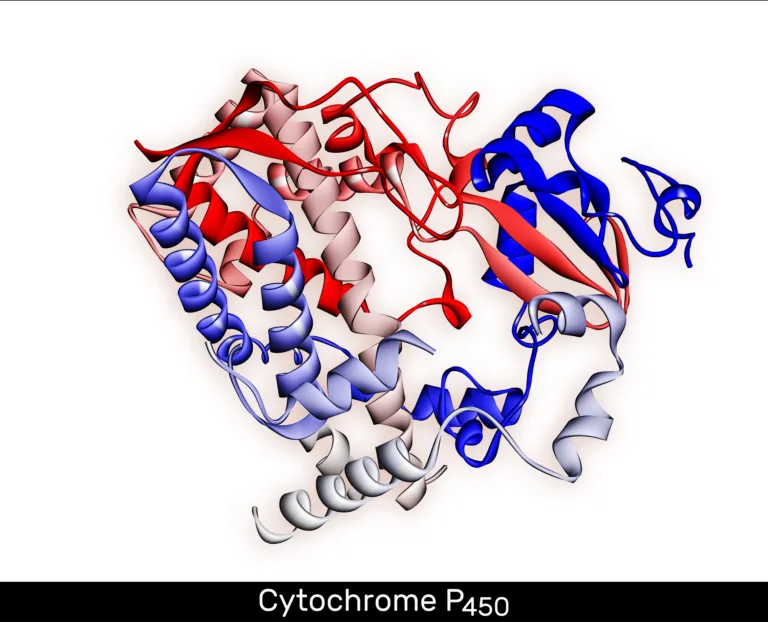Envision a scenario where you present a medical issue to your doctor, expecting a routine procedure. Following an initial examination, a treatment plan emerges. Yet, this plan diverts from traditional methods—your genetic composition becomes a focal point for treatment strategy. This embodies personalized medicine, a paradigm shift in healthcare, focusing on individual genetic profiles to customize care.
The realm of personalized medicine merges genetics with pharmacology, heralding a new era in patient care. This domain, known as pharmacogenomics, is characterized by a profound exploration of human genetics. The goal is to elucidate the relationship between our genetic makeup and our response to drugs, thereby transforming patient management.
Through delving into our DNA’s complexities, the potential of personalized medicine becomes palpable. It facilitates an integration of genetic insights into clinical decisions, aiming to enhance treatment efficacy, diminish negative side effects, and bolster patient contentment. This evolution in healthcare signifies a move towards more nuanced and effective patient care strategies.

Key Takeaways of Personalized Medicine and Pharmacogenomics:
- Personalized medicine tailors treatments to a person’s unique genetic profile
- Pharmacogenomics explores the influence of genes on drug response
- The promise of personalized medicine includes improved outcomes and reduced adverse reactions
- Advances in genetic research are paving the way for more effective and personalized treatments
- Understanding the ethical implications of personalized medicine is crucial for its responsible implementation
The Evolution of Personalized Medicine
Personalized medicine, also known as precision medicine, marks a paradigm shift in healthcare delivery. What catalyzed its emergence and transformation into today’s patient-centric method?
Historically, practitioners discerned individual-specific treatment responses, attributing variations to biological and physiological differences. Yet, it required the confluence of contemporary medical technologies and genomics breakthroughs for personalized medicine to crystallize.
A pivotal event was the Human Genome Project’s conclusion in 2003. This ambitious project afforded an exhaustive human genome delineation, paving the way for intricate genetic variation studies and their implications on health and illness.
Post-Human Genome Project, the medical fraternity began integrating genetics into clinical decision-making. This led to pharmacogenomics’ ascendancy within personalized medicine, focusing on how one’s genetics influence medication responses. Thus, enabling customized treatment regimens.
The progression of personalized medicine paralleled technological advances. Innovations in high-throughput sequencing and bioinformatics catalyzed efficient genetic analyses. This facilitated broad genomics research, uncovering disease-related genetic markers.
Presently, personalized medicine’s scope extends from oncology to preventive healthcare. It leverages genetic insights to furnish precise therapies, minimize adverse medication effects, and enhance patient care outcomes.
“Personalized medicine is revolutionizing healthcare by shifting the focus from a one-size-fits-all approach to a patient-centered model. It empowers physicians to make evidence-based, individualized treatment decisions, ultimately improving the quality of care.”
The ascendancy of personalized medicine is anchored in scientific discovery, technological innovation, and an enriched comprehension of genes, environment, and lifestyle dynamics. With ongoing research, personalized medicine is poised to redefine healthcare in unprecedented ways.
Stay tuned for the next section as we delve into the fascinating world of pharmacogenomics and its role in personalized medicine.
Unraveling the Human Genome
The domain of pharmacogenomics is paramount in forging personalized medicine pathways. Through meticulous analysis of the human genome, it provides professionals insights into the genetic determinants of drug efficacy. Such knowledge is pivotal for customizing treatment protocols that align with individual genetic profiles.
At its core, pharmacogenomics examines the interplay between one’s genetic composition and medication response. This field scrutinizes genetic diversities to pinpoint markers predictive of a drug’s performance, toxicity, and optimal dosage. It’s a meticulous endeavor aimed at enhancing therapeutic precision.
Employing avant-garde technologies alongside bioinformatics tools, this discipline aims to demystify genetic variances affecting drug dynamics. Ascertainment of a person’s genetic idiosyncrasies enables the formulation of bespoke treatment strategies. These modalities seek to augment efficacy whilst curbing undesirable reactions.
The ambition of personalized medicine, fueled by pharmacogenomics, is to transcend conventional treatment schemas. It envisages a healthcare landscape where therapeutic interventions are distinctly tailored, elevating the precision of medical care.
“The ability to unravel the human genome has opened doors to a new era of medicine, where treatment plans are tailored to the unique genetic characteristics of each patient.”
Understanding genetic influences on drug responses elevates the potential of personalized medicine to enhance patient care outcomes. Moreover, pharmacogenomics eschews the inefficiencies of empirical drug prescription approaches. This not only augments patient contentment but also offers a pragmatic route to curtailing medical expenditures through strategic medication selection.
| Advantages of Pharmacogenomics in Personalized Medicine | Benefits |
|---|---|
| 1. Precision Treatment | Patients receive medications that are tailored to their genetic makeup, increasing treatment efficacy. |
| 2. Reduced Adverse Reactions | By identifying genetic variants that contribute to drug toxicity, healthcare professionals can reduce the risk of adverse reactions. |
| 3. Optimized Dosage | Pharmacogenomic testing can determine the ideal dosage for each patient based on their genetic profile, ensuring optimal results. |
| 4. Improved Treatment Outcomes | Personalized medicine enhances treatment outcomes and patient satisfaction by tailoring therapies to individual genetic characteristics. |
The evolution of pharmacogenomics, spurred by continuous research and technological strides, keeps unraveling the intricate genetics-drug response nexus. This burgeoning comprehension heralds a transformative epoch in healthcare, spotlighting the expansive promise of personalized medicine.
The subsequent discourse will delve into the extensive implications of personalized medicine. It will critique the impending challenges in assimilating this groundbreaking healthcare methodology.
The Promise of Personalized Medicine
Personalized medicine heralds a transformative era in healthcare, propagating treatments uniquely designed for individual patients. This paradigm diverges from conventional models, acknowledging the distinctiveness of each patient’s genetic constitution and its profound implications on therapeutic outcomes. Such a bespoke approach transcends the generic “one size fits all” strategy, fostering a nuanced understanding of patient-specific responses to drugs and therapeutic interventions.
The cornerstone advantage of personalized medicine lies in its potential to enhance therapeutic efficacies markedly. By delving into the intricacies of an individual’s genetic profile, clinicians can identify medications with the highest likelihood of success. This precision, rooted in genetic insights, significantly curtails the inefficiencies of the traditional trial-and-error methodology, conserving both time and healthcare resources.
Moreover, personalized medicine endeavors to curtail the incidence of adverse medication reactions. Such incidents pose grave risks, potentially culminating in hospital admissions, extended convalescences, or even mortalities. Through the early detection of genetic predispositions to adverse drug responses, healthcare practitioners are better equipped to preemptively mitigate these dangers, opting for safer therapeutic alternatives when necessary.
A further merit of personalized medicine is its capacity to elevate patient contentment levels. Treatments, when individualized, resonate more with the recipient, enhancing both the efficacy and tolerability of medical interventions. This alignment between treatment and patient expectation fosters a more collaborative, satisfying healthcare experience, pivotal for patient-engagement and recovery trajectories.
In essence, the advent of personalized medicine promises to redefine healthcare, prioritizing the customization of care based on genetic and individual patient data. This innovative framework is poised to ameliorate treatment outcomes, diminish adverse drug responses, and augment overall patient satisfaction. It embodies the vanguard of medical practice, setting the stage for a healthcare landscape that prioritizes personalized, patient-centric care modalities, aiming at holistic health improvements on a global scale.
Challenges in Implementing Personalized Medicine
Personalized medicine promises transformative enhancements in patient care and treatment results. Yet, its universal adoption in clinical settings is obstructed by diverse challenges. These obstacles must be navigated to anchor personalized medicine as healthcare’s normative practice.
The Knowledge Gap
The comprehension of personalized medicine amongst healthcare professionals remains notably insufficient. A significant number of physicians and clinicians lack the requisite skills to integrate genetic insights into their clinical judgements. It is imperative to bridge this educational void via targeted programs, thereby enabling personalized medicine’s seamless assimilation into everyday healthcare.
Technological Infrastructure
Advanced technological systems are pivotal for personalized medicine’s successful deployment. Many medical institutions, however, lack the infrastructure essential for the sophisticated demands of genetic testing and data analytics. To harness personalized medicine’s possibilities fully, the adoption of genomics technologies and compatible electronic health records is indispensable.
Cost and Accessibility
The accessibility of personalized medicine suffers due to its prohibitive costs. The expense attached to genetic tests and requisite technologies precludes broad patient access. For equitable distribution, the innovation of cost-effective testing solutions and comprehensive reimbursement strategies is vital.
Privacy and Ethics
Privacy and ethical dilemmas emerge prominently with personalized medicine’s integration. The ethical management of genetic data, ensuring privacy and securing informed consent for its use, is foundational for maintaining patient confidence and ethical integrity. Implementing rigorous data protection measures is critical to mitigating these issues.
Regulatory Challenges
The standardization of personalized medicine is further complicated by regulatory obstacles. The approval and regulation of genetic tests and specialized treatments are often protracted, delaying their clinical adoption. Simplifying regulatory frameworks and establishing universal guidelines are essential steps towards personalized medicine’s widespread acceptance within healthcare frameworks.
The realization of personalized medicine’s potential necessitates a synergistic approach among healthcare entities, researchers, policymakers, and commercial participants. Confronting these challenges head-on will catalyze the evolution of healthcare, fostering the provision of tailored treatments with profound benefits for patient care.
The Role of Pharmacogenomics in Personalized Medicine
Pharmacogenomics plays a crucial role in advancing the field of personalized medicine by harnessing genetic information to tailor drug therapies for individual patients. By understanding how an individual’s genetic makeup influences their response to medications, healthcare providers can optimize treatment plans and improve patient outcomes.
Through pharmacogenomics, healthcare professionals can identify genetic variations that may impact an individual’s drug metabolism, efficacy, and potential side effects. By integrating this information into clinical decision-making, personalized medicine can offer targeted and precise interventions, enhancing patient care.
One of the key applications of pharmacogenomics in personalized medicine is the identification of genetic biomarkers predictive of drug response. These biomarkers can help healthcare providers determine the most effective medications for each patient and adjust dosages accordingly. By tailoring drug therapies to an individual’s genetic profile, personalized medicine minimizes the risk of adverse reactions and enhances treatment efficacy.
Moreover, pharmacogenomics contributes to the field of personalized medicine by enabling the identification of specific patient populations who may benefit the most from certain medications. Through the analysis of genetic variants, healthcare providers can identify subgroups of patients who are more likely to respond positively to a particular drug, allowing for targeted treatment strategies.
Benefits of Pharmacogenomics in Personalized Medicine:
- Enhanced treatment outcomes by tailoring drug therapies to individual genetic profiles
- Reduced risk of adverse drug reactions
- Improved medication efficacy by optimizing drug selection and dosages based on genetic biomarkers
- Identification of patient populations who may benefit the most from specific medications
- Greater cost-effectiveness by avoiding ineffective treatments
“Pharmacogenomics is revolutionizing personalized medicine by enabling healthcare providers to apply a more targeted and individualized approach to patient care, minimizing adverse reactions and optimizing treatment outcomes.”
As personalized medicine continues to expand and evolve, the integration of pharmacogenomics is crucial for delivering tailored and effective treatments to patients. By leveraging genetic information, healthcare providers can truly personalize medicine, optimizing therapy options and avoiding the one-size-fits-all approach. This integration of pharmacogenomics in personalized medicine holds immense promise for improving patient care and advancing medical science.
Ethical Considerations in Personalized Medicine
The dawn of personalized medicine has introduced profound implications for healthcare, necessitating vigilant ethical oversight. Tailoring treatments to an individual’s genetics harbors the potential for unprecedented patient outcomes. Nevertheless, it incites critical concerns around patient privacy, the sanctity of informed consent, and the guarantee of equal access to these medical innovations.
Privacy: Central to personalized medicine is the acquisition and analysis of genetic data, demanding rigorous privacy measures. This necessitates healthcare entities to implement stringent security protocols and anonymization processes. Such measures are crucial to thwart the unauthorized exploitation of sensitive genetic information.
Informed Consent: The paradigm shift towards personalized medicine mandates an augmentation of informed consent protocols. It is imperative that patients grasp the implications, including possible risks and benefits, of bespoke therapeutic approaches. Ensuring transparent dialogue is indispensable for equipping patients with the knowledge to make informed health decisions.
Equity in Access: There looms a risk that personalized medicine could widen health disparities unless deployed with circumspection. It is an ethical imperative to democratize access to these innovative treatments and genetic assessments. Striving for equitability in healthcare services ensures advancements in personalized medicine do not amplify gaps in healthcare access.
“Balancing the potential benefits of personalized medicine with its ethical implications requires careful consideration and ongoing dialogue among healthcare professionals, policymakers, and the general public.”
The ethical dilemmas posed by personalized medicine beckon for a collaborative approach spanning multiple disciplines. It is essential to embed ethical considerations within the fabric of personalized medicine’s evolution. Such interdisciplinary cooperation paves the way for the conscientious deployment of genomic breakthroughs, prioritizing patient welfare.
The Importance of Ethical Guidelines
To adeptly navigate the ethical terrain in personalized medicine, the formulation and adherence to ethical guidelines is paramount. These frameworks, championed by leading organizations, enshrine core ethical principles. Adherence to these precepts is foundational for healthcare providers to ethically harness the potential of personalized medicine while averting ethical transgressions.
Current Applications of Personalized Medicine
The domain of personalized medicine, driven by cutting-edge advancements in pharmacogenomics, is recording notable achievements in diverse medical fields. It is underscored by real-world instances and case studies that underscore the role of personalized medicine and pharmacogenomics in enhancing patient care and refining therapeutic strategies.
Precision Oncology
In the realm of precision oncology, personalized medicine has marked a significant milestone. The careful analysis of genetic profiles permits oncologists to devise treatment regimens aimed at targeting precise genetic anomalies that fuel tumor growth. Consider, for instance, the employment of targeted therapeutic agents like imatinib for individuals suffering from chronic myeloid leukemia, which has observably improved response rates and extended survival periods.
Pharmacogenetics in Psychiatry
The discipline of psychiatry has equally benefited from the advent of personalized medicine. Pharmacogenetic testing is instrumental in revealing genetic differences that affect an individual’s reaction to psychiatric drugs. This knowledge enables psychiatrists to select the most suitable medication, significantly reducing the likelihood of undesirable side effects. Such personalized treatment protocols have shown efficacy in managing disorders including depression, anxiety, and schizophrenia.
Cardiovascular Medicine
Cardiovascular medicine is witnessing transformative changes through personalized methodologies. Pharmacogenomic assessments are pivotal in identifying individuals susceptible to negative responses from cardiovascular drugs, like statins or antiplatelet agents. Cardiologists, armed with genetic insights, can thus ensure the administration of the safest and most efficacious treatments. This reduces adverse events and enhances patient health outcomes.
Genetic Screening in Pediatrics
Furthermore, personalized medicine is reshaping pediatric care. Genetic screenings facilitate the early discovery of genetic disorders in neonates, paving the way for immediate and tailored interventions. Such strategies have revolutionized the treatment of diseases such as cystic fibrosis and phenylketonuria, significantly ameliorating the lives of the children affected and their families.
“The integration of personalized medicine and pharmacogenomics into various medical specialties signifies a profound progression in the essence of patient-centered healthcare. It embodies the utilization of unique genetic profiles to sculpt treatments that are distinctly more accurate, potent, and safer.”
– Dr. Sarah Johnson, Chief Medical Officer at GenoDx
This narrative elucidates merely a segment of the vast potential that personalized medicine and pharmacogenomics hold across an array of medical disciplines. Continuous research is extending our comprehension of the genetic underpinnings of myriad diseases, thereby perpetually broadening the horizons for personalized medical interventions.

Future Directions in Personalized Medicine
In the rapidly advancing field of personalized medicine, the future holds exciting possibilities for further advancements and innovations. Integrating pharmacogenomics with cutting-edge technologies, personalized medicine aims to revolutionize healthcare. It aspires to customize treatments based on an individual’s unique genetic profile, marking a substantial departure from traditional one-size-fits-all approaches.
The expansion of targeted therapies represents a pivotal area of future development. By pinpointing genetic markers linked to specific diseases, researchers and pharmaceutical entities can concoct medications targeting molecular roots. This methodology not only bolsters treatment efficacy but also attenuates adverse reaction risks, elevating patient security.
Advancements in diagnostics and genetic testing are instrumental in propelling personalized medicine forward. The advent of gene sequencing technologies enables the identification of genetic variances with unprecedented precision. As the comprehension of the human genome amplifies, healthcare practitioners will leverage enriched genetic data for informed treatment directives.
Emerging Technologies in Personalized Medicine
“The seamless integration of artificial intelligence (AI) with machine learning algorithms stands to redefine personalized medicine. These technologies adeptly sift through expansive datasets, uncovering patterns that might elude human detection. AI-facilitated algorithms possess the capability to forecast individual medication responses, optimizing treatment methodologies whilst curbing empirical prescribing.”
The domain of precision oncology is slated for substantial progress. Genomic profiling amalgamated with state-of-the-art imaging techniques empowers oncologists to dissect a patient’s tumor with enhanced clarity, formulating bespoke treatment plans. This strategy acknowledges tumor diversity, furnishing robust mechanisms against cancer.
Preventative care’s role in personalized medicine’s evolution is equally auspicious. Employing genetic screening alongside risk assessment tools, healthcare professionals can pinpoint individuals with predispositions to particular ailments, enacting preemptive measures. Such forward-looking measures aim to thwart disease onset or facilitate its early detection, optimizing treatment efficacy.
Research Areas Shaping the Future
The exploration of epigenetics is unveiling the intricate dance between gene expression and environmental factors, heralding tailored intervention prospects based on the unique genetic and environmental tapestry of individuals. This research underscores the pivotal interplay of nurture and nature in healthcare customization.
Targeted gene therapies are at the vanguard of research foci, with aspirations to amend or rectify genes implicated in specific maladies. Scientists are pioneering these treatments, targeting the disease genesis for enduring remedies. Such innovative endeavors promise to redefine genetic disorder and inherited condition management.
The discipline of bioinformatics is indispensable to personalized medicine’s trajectory. Merging data from disparate sources, including genomic repositories, medical records, and health monitoring apparatus, bioinformatics equips medical professionals with the tools for data-informed therapeutic strategies, encapsulating the essence of personalized healthcare.
| Advancements in Personalized Medicine | Benefits |
|---|---|
| Targeted Therapies | – Improved treatment outcomes – Reduced adverse reactions – Enhanced patient safety |
| Genetic Testing | – More comprehensive genetic information – Guided treatment decisions |
| Artificial Intelligence and Machine Learning | – Accurate diagnoses – Optimized treatment plans – Personalized medication predictions |
| Precision Oncology | – Tailored treatment regimens – Improved cancer management |
| Preventive Care | – Early disease detection – Proactive interventions |
In conclusion, personalized medicine’s horizon is luminous with prospects for significant strides and novel discoveries. From the refinement of targeted therapies to the advent of groundbreaking technologies and the continuance of genetics and bioinformatics research, personalized medicine is on a trajectory to redefine healthcare. It aims to offer customized therapeutic avenues, enhance patient outcomes, and inaugurate a new era of precise, individual-centric medicine.
Overcoming Challenges for Personalized Medicine
The deployment of personalized medicine within healthcare frameworks encompasses several barriers. Nevertheless, strategic interventions can mitigate these obstacles, facilitating widespread acceptance and incorporation of individualized treatment modalities.
Improving Genetic Testing Access and Affordability
Accessibility and cost-efficiency of genetic evaluations remain pivotal concerns in tailored therapeutic approaches. To tackle these, medical networks must advance and disseminate economical genetic analysis technologies. Establishing partnerships with research bodies and biotechnology firms, alongside advocating for genetic testing insurance coverage, are essential steps in this direction.
Enhancing Data Security and Privacy
The application of personalized genetic information in treatment protocols engenders data security and confidentiality issues. Ensuring data protection demands implementing stringent safeguarding strategies, such as encryption, secure exchanges, and access limitations. Moreover, establishing transparent consent procedures and comprehensive privacy terms is crucial for maintaining patient confidence in genetic data management.
Facilitating Physician Education and Training
The instruction and preparation of physicians is crucial for personalized medicine’s triumph. Incorporating individualized care principles into educational syllabuses of medical academies and healthcare entities is imperative. This outfitting of professionals with the adeptness to apply genetic insights in therapeutic judgements supports ongoing advancement through continuous learning initiatives and symposiums.
“The future of personalized medicine relies on collaboration between scientists, clinicians, and policymakers to address the challenges and seize the opportunities it presents.” – Dr. Jane Thompson, Geneticist
Advocating for Regulatory Frameworks
The establishment of regulatory parameters is indispensable, formulating protocols and benchmarks for personalized care practices. Lobbying efforts should be directed towards fostering the creation of lucid, all-encompassing regulatory structures. These should guarantee the ethical handling of genetic particulars, promoting innovations, protecting patient interests, and ensuring fair access.
Encouraging Interdisciplinary Collaboration
The essence of personalized medicine is inherently interdisciplinary, necessitating cooperative efforts across various healthcare domains. Initiatives to stimulate such collaboration, through research consortia, knowledge exchange platforms, and joint training offerings, are fundamental. This synergistic tactic propels scientific progress, expedites research breakthroughs, and heightens the standard of patient treatment.
Through proactive engagement with these challenges and crafting effective resolutions, healthcare systems can unveil the immense promise of personalized medicine. Integrating genetic insights into routine medical practice promises a transformative leap in patient management, enhancing therapeutic efficacy and ushering in a more individualized, precise healthcare paradigm.
Conclusion
In conclusion, the domains of personalized medicine and pharmacogenomics have significantly transformed our methodology towards patient care. An in-depth comprehension of an individual’s genetic constitution, influencing drug reactions, enables healthcare experts to devise treatments that augment efficacy while curtailing detrimental side effects.
The exposition of the human genome, coupled with technological progressions, has positioned personalized medicine as a formidable instrument within healthcare. It is endowed with the potential to elevate treatment results, augment patient contentment, and curtail the financial burden on healthcare systems.
Notwithstanding, there are obstacles such as integrating personalized medicine into conventional clinical settings and the ethical dilemmas associated with patient confidentiality and equitable access. Yet, these fields of study are on a swift trajectory of evolution, propelled by continuous research and technological innovation.
Looking ahead, the role of personalized medicine within healthcare is set to expand substantially. By leveraging genetic insights to inform therapeutic strategies, we advance towards a healthcare paradigm that not only optimizes health outcomes but also empowers patients to navigate their health journeys with informed agency. For more great articles on pharmacogenomics, go here.





